The 2023 World Barista Championship: What could change this year?
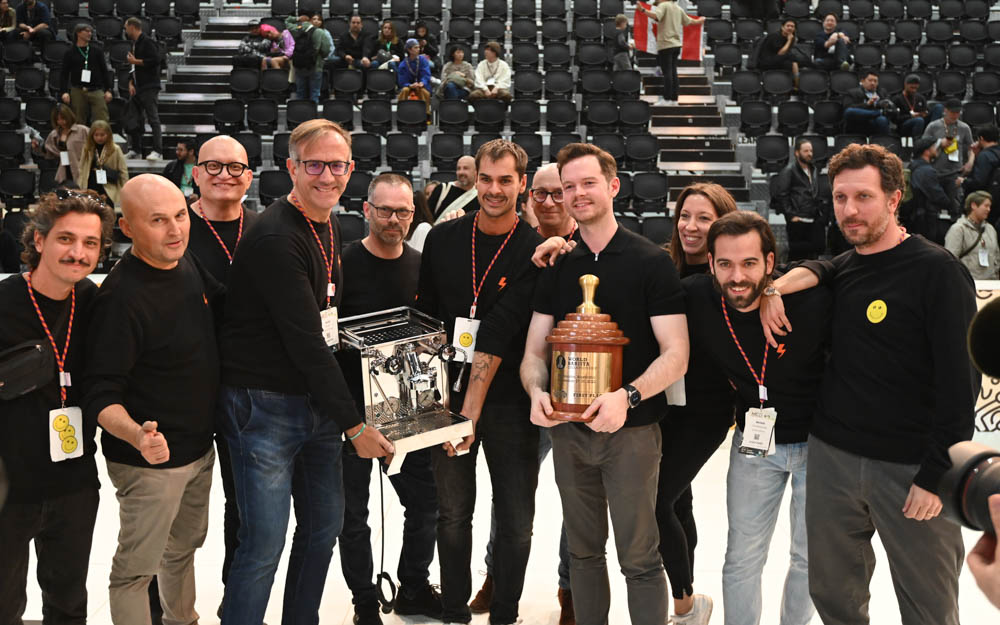
On 21 June 2023 – one day before World of Coffee began – this year’s World Barista Championship started in Athens, Greece. It’s an understatement to say that the WBC is one of the most highly anticipated events in the global coffee industry, never failing to draw in large crowds year after year.
In December 2022, the Specialty Coffee Association released its updated rules and regulations for the 2023 WBC, along with this year’s World Brewers Cup (WBrC), World Cup Tasters Championship, and World Cezve/Ibrik Championship. These three competitions are also taking place in Athens, too.
“The WBC and WBrC updates mark the largest competition changes since before the pandemic, opening up new service possibilities for competitors and major changes in how judges score and evaluate performances,” the SCA stated in the announcement.
So, what should we expect to see at this year’s competition? Read on to find out.
You may also like our article on what the plant milk rule will mean for the future of the WBC.
New rules and regulations
There have been a fair few rule changes for the 2023 World Barista Championship. However, a few key updates are sure to have the biggest impact.
The plant milk rule
This year, for the first time ever at the WBC, competitors will be able to use “commercially available animal and plant-based milks” in the milk beverage course. Prior to this rule change, a milk beverage had to contain cow’s milk – otherwise a competitor using any other type of milk would score zero in the milk beverage round.
This rule change is set to be one of the biggest by far. Considering we have never seen a WBC competitor use plant milks (or any other type of animal milk for that matter), the question remains as to how using them will affect beverage flavour and texture – and therefore scores.
Arguably, as cow’s milk tends to perform better than most other types of milk (including plant-based options), competitors using any other kind of milk may be at a disadvantage. However, given the level of innovation we regularly see on the WBC stage, this may not be the case.
No additional ingredients in the milk beverage round
It’s common for WBC competitors to add other ingredients to their milk for the milk beverage round. Some examples include:
The 2022 World Barista Champion Anthony Douglas, who used cryodessicated milk. To make this, Anthony added 30g of concentrated milk powder to 300g of fresh milk. He said this doubled the concentration of sugars, fats, and proteins.
Danish competitor Patrik Rolf, who placed sixth at the 2022 WBC, added ten drops of lactase to 1l of his milk. He said this helps to break down lactose into two simple sugars: glucose and galactose. In turn, the milk tastes sweeter.
At this year’s competition, however, no additional ingredients can be added to milk for the milk beverage course – otherwise the competitor will receive zero points in the “Taste Experience” category.
According to this new rule, cryodessicated milk – as well as adding certain enzymes to milk to enhance the more desirable characteristics – is no longer permitted. However, similar techniques (such as freeze distilling) will still be allowed, as these methods don’t involve the addition of ingredients.
Updated scoresheets
Alongside the plant milk rule, the biggest change to the 2023 World Barista Championship is the new Evaluation Scale & Scoring sheet. This has been updated in accordance with the SCA’s new Coffee Value Assessment.
This year, there will be four types of scoring at the WBC:
A yes/no score (or 1/0) for the Evaluation Scales stage
A numeric score from 0 to 3 for “accuracy”
A numeric score from 0 to 3 for “impression”
A numeric score from 0 to 6 for “experience”
At previous competitions, all scoring scales ranged between 0 and 6 – and judges could also score half points. At the 2023 WBC, however, no half points can be given for scoring scales between 0 and 3.
In theory, these more concise scoring scales could create a more even playing field, and could also make the judging process more streamlined – but only time will tell.
Assessing texture and tactileness
For the espresso course, scoring aftertaste is now part of the “Taste Experience” category, as opposed to assessing tactile descriptors. This seems more logical, as aftertaste is much more representative of flavour rather than mouthfeel.
Similarly, WBC competitors will now need to provide descriptors for the thickness and texture of their espresso, which the judges will assess. Given this separation from aftertaste, competitors may now have to be more accurate and precise when describing the mouthfeel of their espresso.
Presentation, coffee knowledge, use of space & total impression
While technical skills are certainly important at the World Barista Championship, the judges also score competitors based on several other aspects of their performance.
In previous years, there would be scores for:
“Presentation: professionalism” – which included technique, preparation, and coffee knowledge
“Attention to details/all accessories available”
“Appropriate apparel”
“Judges’ total impression” – which included factors such as overall coffee experience (i.e. whether the espresso, milk course beverage, and signature beverage were all cohesive), the barista’s passion and enthusiasm for specialty coffee, and whether the competitor would be considered a role model
At the 2023 World Barista Championship, there are some changes as to how judges assess and score these aspects. For example:
When it comes to presentation, judges are now looking for originality in concept, methods, techniques, and ingredients used
“Coffee Knowledge & proper use of equipment and space” is now a subcategory within rule 15.4 – and the competitor needs to demonstrate they are a “coffee professional who has command over their presentation and coffee”
The total impression score has been broadened somewhat, and includes several prompt questions such as:
Did the performance inspire a deeper connection to coffee?
Was the experience immersive, thought-provoking, or otherwise important to specialty coffee?
Would this barista have inspired me about specialty coffee?
Did the performance celebrate the craft of coffee?
Ultimately, this could mean that even if a competitor doesn’t serve the highest-quality coffee, they may still be able to receive a high score based on their performance and the concept of their routine.
Different extraction temperatures
All WBC competitors use the same espresso machine in their routines. But now, brewing temperature can now be set anywhere between 90.5° and 96°C (or 195°F and 205°F). Moreover, individual group head temperatures may be selected.
This could be because of the new qualified sponsor espresso machine, which is the Tempesta by Barista Attitude – although this may not be the case.
Considering how much brew temperature affects extraction, this is sure to have a huge impact on the flavours, aromas, and textures of competitors’ espresso – and can lead baristas to become more innovative and creative.
What trends could see this year?
The World Barista Championship certainly keeps industry professionals on their toes, but there are a few things that we’re sure to see at this year’s competition.
For one, it’s safe to assume that some competitors will use Gesha. Considered a darling of specialty coffee, this variety has been a staple of the WBC for years.
However, at recent competitions, we have also seen competitors use other rare varieties and species, as well as blends – so these trends may also continue.
As this is the first year that plant and other animal milks are allowed at the WBC, it would come as no surprise to see some competitors veer away from cow’s milk.
In line with this, as there is now a bigger focus on scoring the concept of a competitor’s routine, we could also see some competitors portray a more impactful message during their performances – particularly when it comes to sustainability and climate change.
With all the recent changes to its rules and regulations, the 2023 World Barista Championship is set to be one of the most exciting and innovative yet.
This year’s WBC will run until Saturday 24 June, with the winner announced later that day.
Enjoyed this? Then read our article on following “The Road to Milan”: Is the World Barista Championship becoming more mainstream?
Photo credits: World Coffee Events, Specialty Coffee Association
Perfect Daily Grind
Want to read more articles like this? Sign up for our newsletter!
The post The 2023 World Barista Championship: What could change this year? appeared first on Perfect Daily Grind.
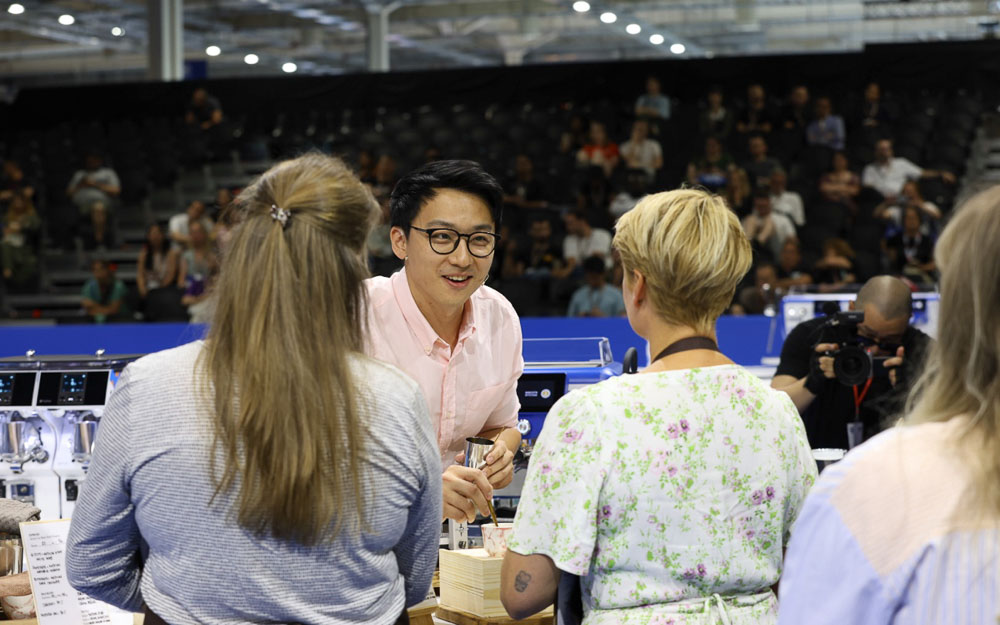
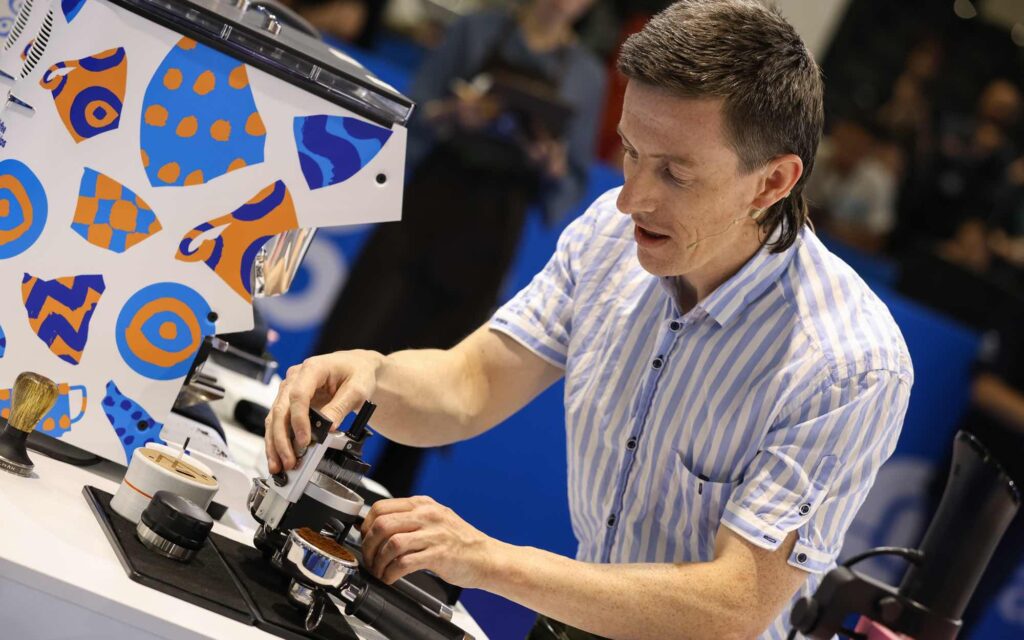
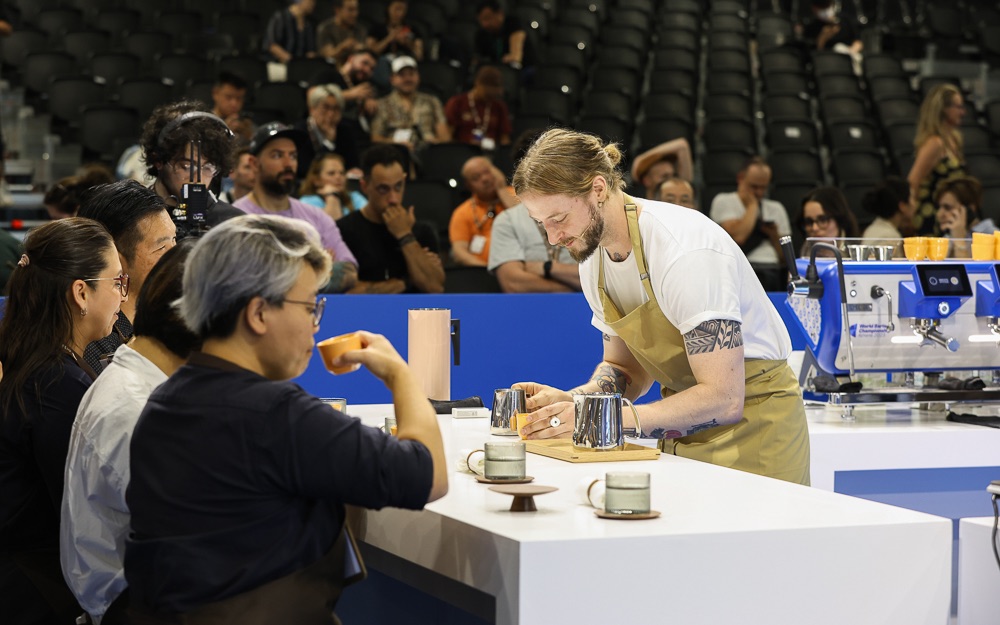
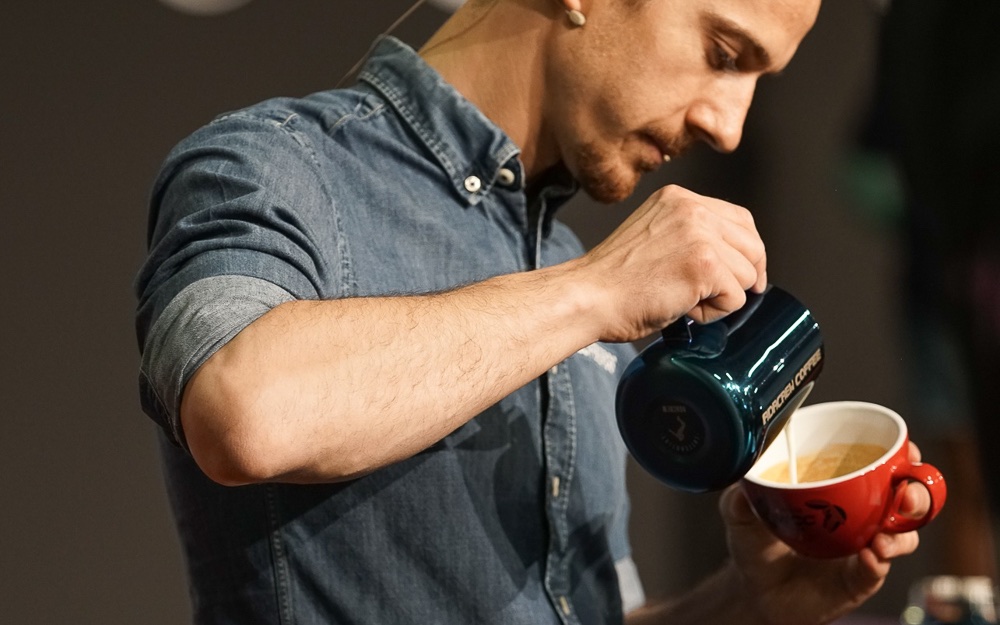

Responses